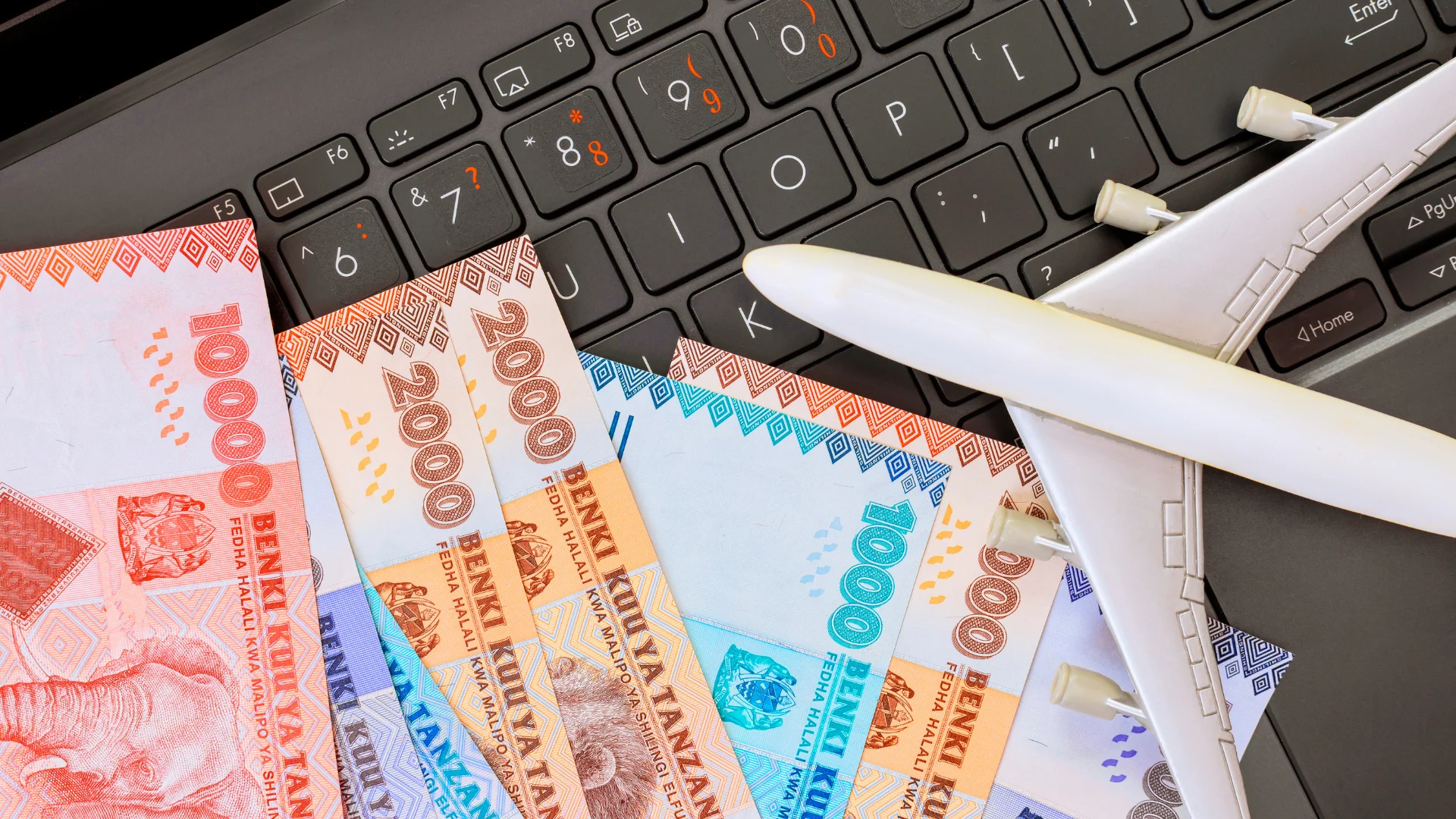If you’re planning to visit Zanzibar—the glistening turquoise-sea archipelago off Tanzania’s coast—then mastering the local money setup is a smart start.
As your friendly local expert, we’re here to help you feel prepared, confident, and ready to explore, from the spice-scented lanes of Stone Town to the dhow-cruising sunsets on the coast.
Money matters because:
- You’ll encounter a mix of currency types and payment methods on the island.
- Some services (ours included!) want to make things seamless for you — we’ll guide you through it.
- Getting the “money part” right means less stress, better value, and more time to enjoy the waves and wildlife.
Zanzibar Currency
What is the Zanzibar Official Currency?
The official currency of Zanzibar (and the whole United Republic of Tanzania) is the Tanzanian Shilling (abbreviated TZS or TSh).
Here are some quick currency facts:
- Banknotes commonly in circulation: 1,000 TZS; 2,000 TZS; 5,000 TZS; 10,000 TZS.
- Coins: 100, 200, 500 TZS (though coins are less used for large-tourist purchases).
- Exchange rate note: 1 USD is worth roughly 2,580 TZS on average. Check for the real-time exchange rate below
Can You Use Other Currencies (USD, EUR, etc.) in Zanzibar?
Yes, you may find places that accept USD or other major currencies, but things have changed — it’s best to use the Tanzanian Shilling as much as possible.
According to updated regulations, as of 28 March 2025, the Bank of Tanzania-issued “Use of Foreign Currencies” Regulations 2025 mandate that all local transactions must be conducted in Tanzanian Shillings, with only limited exceptions.
When You’ll Need to Use Tanzania Shillings
In many parts of Zanzibar and mainland Tanzania, especially away from major tourist hubs, the local currency — Tanzanian Shilling (TZS) — is the only accepted form of payment. You’ll need TZS for:
- Purchases in rural or less developed areas
- Local markets and roadside stalls
- Bars, cafés, and small restaurants
- Independent shops and local vendors
- Everyday expenses such as souvenirs, bottled drinks, snacks, or tips for local services
Basically, whenever you’re interacting directly with locals or smaller businesses, it’s best to have Tanzanian Shillings on hand.
When Paying in USD/EUR Is Accepted
There are still a few situations and service types where US Dollars or EUR remain commonly used or accepted, especially within the tourism sector. These include:
- Tour or safari bookings made in advance with us
- Hotel and lodge stays, particularly at international-standard properties
- Visa fees on arrival at the airport
- Tour balances or deposits paid directly to registered operators, including us.
- Gratuities or tips for guides and drivers
You can also continue using major credit or debit cards (Visa, Mastercard, etc.) at most upscale hotels, resorts, and large businesses. We also accept this form of payment in other currencies.
In addition, a growing number of licensed mobile payment services operate in Stone Town and other tourist-oriented areas, offering another convenient way to pay when cash isn’t ideal.
What you’ll practically find in Zanzibar
- Many hotels, lodges and tour companies used to accept USD.
- Markets, local cafés, taxis and smaller vendors typically prefer TZS and may offer worse value if you pay in USD.
- ATMs in Stone Town and the airport dispense TZS.
Bottom line: Bring USD or EUR as backup or for major transactions, but plan on doing most of your spending in Tanzanian Shillings.
Where to Exchange Money and Withdraw Cash in Zanzibar
Exchange & ATMs
- At the airport, banks or licensed forex bureaus you can change USD/EUR into TZS. But rates may be less favourable.
- ATMs: Available in Stone Town and larger tourist areas; you’ll withdraw TZS. Smaller / remote areas may have fewer machines.
- Avoid changing money in markets or with unlicensed vendors — you might get less favourable rates or be exposed to risk
Cards & Mobile Payments
- Credit/debit cards (Visa, Mastercard) are accepted in many upscale hotels, resorts, and larger shops. But not everywhere, especially in local markets or remote lodges.
- Mobile payments / digital wallets: These are increasingly relevant in Zanzibar — e.g., platforms like M‑Pesa, Airtel Money, and others. It’s smart to check whether specific services apply in Zanzibar and how.
Tip: Always choose to pay in the local currency (TZS) when given a choice at a card terminal — otherwise you may be charged a worse exchange rate via dynamic currency conversion.
Zanzibar Travel Budget: Daily Costs in USD and TZS
Here are approximate daily spending ranges for Zanzibar (2025) to help you plan. These are per person, excluding international flights and premium safari add-ons.
Rates used: ~1 USD ≈ 2,580 TZS (average)
Low-cost: USD 50 → ~TSh 129,000
Mid-range: USD 150 → ~TSh 387,000
Luxury: USD 300 → ~TSh 774,000
| Travel Style | USD / Day | TZS / Day | Typical Inclusions |
|---|---|---|---|
| Budget Travel | $50 | ~129,000 TZS | Local guesthouse, street food, shared tours |
| Mid-Range | $150 | ~387,000 TZS | Boutique hotel, guided tours, local dining |
| Luxury | $300 | ~774,000 TZS | 4-5★ resort, private transfers, exclusive excursions |
Note: These are indicative figures only. Your actual spending may vary depending on timing, accommodation type, tours booked, and how much you indulge.
Book your activities with us and we’ll help you with exact costs for each day’s adventures.
Essential Money Tips for Travellers in Zanzibar
- When you book your trip with us, we’ll help you plan how much TZS you should bring or withdraw, depending on your itinerary (including safaris, Island hopping, swimming with turtles, etc).
- Upon arrival, exchange enough TZS at a bank or trusted forex to cover your first 24–48 hrs (transport, meals, minor purchases), and withdraw more as needed via ATM.
- Avoid paying in USD at local street stalls or taxis — you’ll likely pay a premium or receive poor value. Use TZS to avoid surprises.
- Keep some backup in USD/EUR for larger bills (e.g., safari balance, international flights, luxury lodge bills), but be aware you’ll likely need to convert to TZS for local payments.
- Use mobile payments or cards when available, but always carry a small cash buffer in TZS (for when you’re out exploring and away from urban centres).
- For tipping your guides, boat drivers, etc., TZS is optimal (you’ll avoid awkward small-change issues).
- Check your bank’s overseas fees and notify them you’re travelling to Tanzania, so your card withdrawals work smoothly.
- Keep track of the current exchange rate (via apps or websites) so you know you’re getting a fair deal.
- Before departure, if you have large amounts of leftover TZS, convert back at a bank or bureau early — don’t wait until the airport, when rates may worsen.
FAQs About Zanzibar Currency
What is the official currency used in Zanzibar?
The Tanzanian Shilling (TZS) is the only legal tender. USD is accepted in some tourist establishments, but not for everyday use.
Can I pay in US Dollars everywhere in Zanzibar?
No. Use TZS for local shops, markets, and small businesses. USD is fine for hotel bills or bookings.
Are there ATMs in Zanzibar?
Can I use my debit or credit card?
Yes, but mostly at hotels, resorts, and upscale restaurants. Expect a 3–5% transaction fee.
How much TZS cash should I carry daily?
For budget travellers, 100,000–150,000 TZS per day covers food, local travel, and small extras.
Can I pay for tours and excursions in foreign currency?
Yes, Go Smart Zanzibar Tours and many tour operators in Zanzibar accept USD and other currencies for convenience.
Final Thoughts
Zanzibar Currency doesn’t have to be a source of worry during your Zanzibar trip — with a little planning, you’ll have one less thing to think about, and more time to enjoy the ocean breeze, spice tours, snorkelling and sun-drenched beaches.
As your tour operator, Go Smart Zanzibar Tours stands ready to assist you with all the “money logistics” — from arrival guidance to budgeting for your activities.
We look forward to welcoming you to Zanzibar — and helping you spend smart, travel well, and experience the island exactly as it deserves.
Ready to book your Zanzibar adventure? Check out our tour packages here
Need travel tips, packing list or island-hopping ideas? Learn more about Zanzibar
Questions about currency, transfers or bookings? Contact us now





